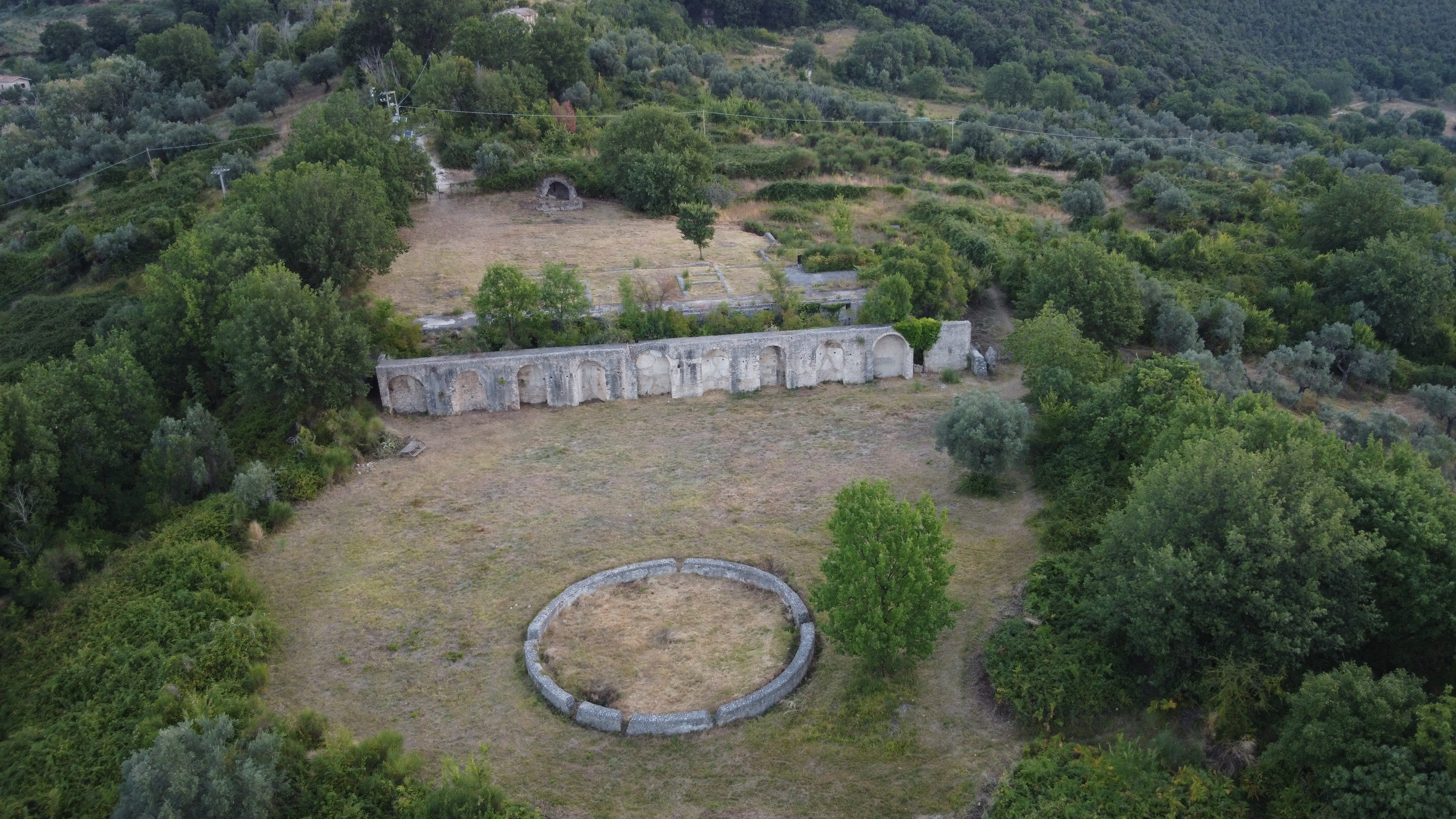Sabine Huebner – Resilient Landscapes: Climate, Economy, and Human Adaptation in the Roman Sabina

Villa dei Casoni. Photography courtesy Sabine Huebner
This is the fourth in a series of five lectures on Material Environments, hosted jointly by the American Academy in Rome and the British School at Rome over the academic year 2025–26. Through five evening lectures, speakers will present new research on environments of ancient and post-Classical Rome and Italy. Changing technologies of research provide new answers to questions about the experience and effect of landscape and climate. These lectures showcase the ways in which environmental considerations recast our study of the past.
This paper presents an interdisciplinary exploration of environmental change, agricultural practice, and human adaptation in central Italy’s Sabina Tiberina, focusing on the newly launched Basel Villa dei Casoni Project. Situated between the Tiber plain and the Apennine foothills, the site offers a unique vantage point for examining how climate variability, land use, and social structures intersected in the Roman hinterland.
Through integrated methods—geophysical prospection, GIS mapping, palaeoclimate reconstruction, and ancient DNA analysis—the project reconstructs the long-term dynamics linking environment and society from the Iron Age to Late Antiquity. The Villa dei Casoni, a second-century BCE estate later transformed into an imperial residence, encapsulates the region’s transition from indigenous agrarian systems to market-oriented production and its eventual decline amid climatic and economic shifts.
By correlating environmental proxies (speleothems, dendrochronology, and sediment cores) with archaeological and bioarchaeological evidence, this study seeks to understand how Roman communities responded to climatic instability, crop failure, and disease. It argues that the Sabina represents not a peripheral zone, but a laboratory of resilience—where adaptation, innovation, and continuity reveal the deep entanglement of human and environmental histories.
In connecting archaeological, ecological, and genomic data, the paper highlights the potential of interdisciplinary research to illuminate the rhythms of ancient environmental change and to model long-term human responses to climate stress—an inquiry as vital today as it was in the Roman past. Sabine Huebner is a Professor in the Department of Ancient Civilizations at the University of Basel.
Sabine Huebner is Professor, Department of Ancient Civilizations at the University of Basel.